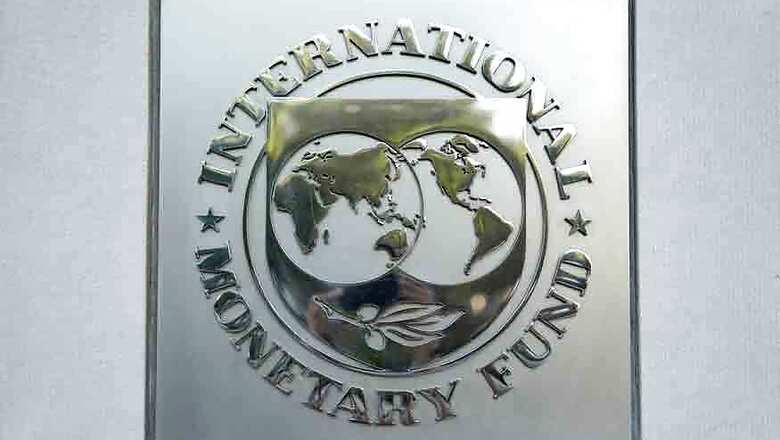
views
Islamabad: Pakistan and the International Monetary Fund (IMF) are set to sign a USD 6-8 billion bailout package, Finance Minister Asad Umar has announced, as the cash-strapped country tries to wriggle out from a severe balance-of-payments crisis that threatens to cripple its economy.
He said the IMF package would ease off pressure from the country's dwindling foreign reserves.
"We have reached an agreement and all the major issues have been settled and documented," Umar told a meeting of the National Assembly's Standing Committee on Finance and Revenue on Monday after a visit to the United States.
External account pressure reduced Pakistan's international reserves to USD 6.6 billion by mid-January 2019, but with short-term financing from Saudi Arabia, the United Arab Emirates and China, foreign reserves increased to USD 10.5 billion at the end of March.
Umar said an IMF mission would visit Islamabad during the last week of April, which is when the bailout package amount would be finalised, Pakistani media reported.
The finance minister later told journalists that the bailout package with the IMF had been "agreed upon in writing and we have an agreement on all policy matters." These matters included exchange rate, fiscal deficit, energy, public finance and public sector entities, he said.
Umar said the exact size of the fund programme had not been concluded, adding that it would be between USD 6 billion and USD 8 billion.
He said major flows would then come from the World Bank and the Asian Development Bank (ADB) that had been blocked in the pipeline owing to insufficient import cover and the absence of IMF umbrella.
He said Pakistan's financing gap was around USD 15 billion while USD 7-8 billion from the World Bank, USD 6-8 billion from the IMF and ADB would be available while the process for launch of international bonds had already been started.
The ADB this month forecast that Pakistan's economic growth is set to slump further to 3.9% in fiscal year 2019 from 5.2% in 2018, citing the "macroeconomic challenges" faced by the country.
"Until macroeconomic imbalances are alleviated, the outlook is for slower growth, higher inflation, pressure on the currency, and heavy external financing needed to maintain even a minimal cushion of foreign exchange reserves. Recurrent crises in the balance of payments require that firms become more export competitive," the ADB said.
Umar said funds provided by friendly countries had helped create a cushion over the period to compress current account deficit. As a result, the conditions are much different now than the government was discussing with the IMF in October-November last year.
He said the crisis was over now, but stabilisation would continue for sometime which could not be expedited or else the country would again be in the balance of payment problem.
Asked about reported IMF demands for complete details of Chinese loans, the finance minister said such reports were unfounded and surprising because the fund had asked questions on the subject in October last year.
He said all the details of the Chinese assistance were provided as the government felt there was nothing to hide.
Last week, three influential US lawmakers urged the Trump administration to oppose the proposed multi-billion bailout package being sought by Pakistan from the IMF arguing it could be used to repay the Chinese debt.
In a letter to Treasury Secretary Steven Mnuchin and Secretary of State Mike Pompeo, the bipartisan group of three lawmakers Ted Yoho, Ami Bera and George Holding expressed their "deep concern" over the likely use of IMF's bailout package to repay the massive Chinese debt that Pakistan has accumulated under the China-Pakistan Economic Corridor (CPEC).
China, they said, is investing USD 62 billion in Pakistan under the CPEC. "Its debt repayment and profit repatriation terms are not transparent and have understandably raised concerns inside Pakistan," the US lawmakers said.
















Comments
0 comment